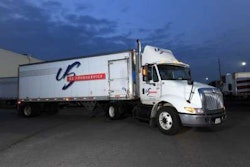The American Trucking Associations on Tuesday, July 14, told the U.S. Senate Committee on Environment and Public Works that climate change legislation would impose significant costs on American consumers.
In his statement on behalf of ATA, Ray Kuntz, chairman of ATA’s executive committee and immediate past ATA chairman, said that any substantial cost increases imposed directly or indirectly on trucks by climate change legislation will curtail the delivery of vital consumer goods across the nation, such as food, medicine and clothing.
“Constraining the country’s freight delivery system would change our way of life for the worse by significantly increasing the cost of everything we buy,” said Kuntz, who is chairman and chief executive officer of Watkins and Shepard Trucking, based in Helena, Mont.
ATA says a one-cent increase in the average price of diesel costs the trucking industry an additional $390 million in fuel expenses. Petroleum suppliers have indicated that climate change legislation could increase the cost of gasoline by 77 cents per gallon for gasoline and 88 cents for diesel fuel. ATA says that as trucking companies struggle with already miniscule margins, additional costs for fuel would be passed on to shippers of goods and materials, and ultimately to consumers.
In addition to increased fuel costs, Kuntz, who serves on ATA’s Sustainability Task Force, addressed six other issues in his testimony relating directly to climate change legislation and the trucking industry:










